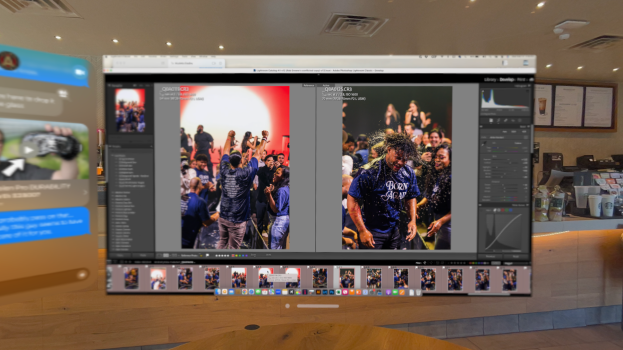I am sorry if I somehow hurt your sensitivity but the "angry" smiley face was the only option to express my disagreement (the one with the thumb was missing) and honestly I had also forgotten it.It’s still unclear why you made an “angry” reaction, but I no longer care.
This is a discussion on the purpose and value of the Vision Pro, a solution in search of a problem, and whether early adopters are keeping or returning the gear within the two-week window. Their findings may be instructive in the future.
I struggle to find anything naïve about holding to task Silicon Valley-based strides toward re-inventing wheels via overly complex inventions when there are other, far more out-of-box ways to approach solving problems which already exist (like the aforementioned self-driving/autopilot cars or, yes, the Vision Pro). Others in this thread have remarked on set-up times to use Vision Pro for tasks they could do much more quickly on extant devices. In other words, yet another minus.
As to whether Apple or others can find problems, ex post facto, for which the Vision Pro can solve uniquely or solely, is to be determined. But sage business practice, as hungry innovators the world over, time and again, can attest, a problem needs to be present, understood, and addressed head-on, while the solution of their innovation can solve that established problem.
There is no naïveté here. There is a pragmatism without a vested interest (whether as an early Vision Pro adopter or company shareholder). There is a case argument to be made around the insular thinking when the best Silicon Valley can churn out for innovation are the above-discussed paradigms/products whose problematics either rely upon thin rationale or don’t exist at all.
Apple are a publicly-traded company comprised of shareholders. In the end, shareholders shall not be denied, or else they will dump those shares for better, long-term investments. This is how publicly-traded corporations live and die. Although I don’t believe Apple are anywhere near this, the bigger a corporation gets, the slower they respond. The bigger they get, the more diversified they have to become to maintain growth.
What’s naïve is holding belief — one held tightly by capitalists — that growth is infinite.
tl;dr: “Too big to fail, so let’s create products which will bring out the worst in consumers — so long as our shareholders stay happy.”
Is that a world you want to leave for your kids? I certainly don’t.
I work in an all-Mac workplace and live in an all-Mac household. I used my first Mac in 1990. I sold Newtons in 1993 and 1994. I bought my first Mac in 1999.
Wanna run all that by me again? On second thought, save your breath.
I’m sorry you’re only able to misread the point I made around Vision Pro’s raison d’être — the problem(s) it solves — which is what again, exactly?
Take a good, hard look at, historically, the “luxury” items which plummet in value and which hold them.
Luxury can be gauche, outré, or timeless. This does mean the consumer, one able to afford luxury products, have a foresight, wherewithal, and prudence to discern between these.
Money — especially from new wealth — is no proxy for foresight, wisdom, or pragmatism, and it never has been. And this doesn’t begin to factor taste into the mix.
On the other hand, as for our interesting exchange of views, it is clear that we think differently and I don't believe the topic deserves any more precious time (we are also OT).
And, well, I admit that I am in a bit of a hurry: I have a driverless cab waiting for me because, before my wife gets back, I am going to sell her several luxury bags so (I hope) I can buy a second AVP.




